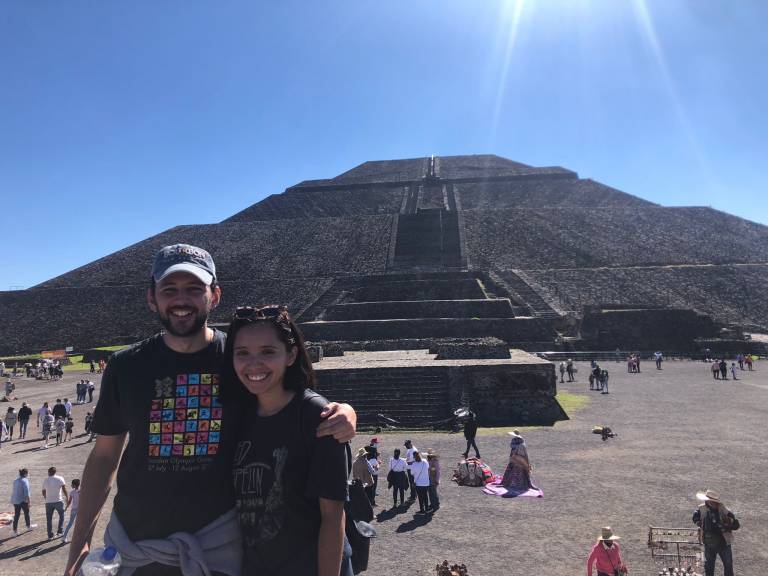UCL History Alumnus awarded Leverhulme Study Abroad Studentship for 2 years research in Mexico
18 October 2021
We chatted to UCL History graduate Michael Bax about his exciting award.

1. Hi Michael, thanks so much for talking to us! Congratulations on your Leverhulme Trust Study Abroad Studentship – can you tell us a bit about the award and what it means for you?
Thank you so much!
The Leverhulme Study Abroad Studentship funds study or research at a centre of learning anywhere in the world except the UK or the USA. I first was made aware of the award by Dr. Chloe Ireton, who suggested that I should apply. Thanks to the award I will be spending two years in Mexico City, conducting archival research, and taking classes on the culture, language, and religion of the Nahuas - the indigenous groups of central Mexico which included the Aztecs - at the Universidad Nacional Autonóma de México (UNAM). My work will ultimately culminate in a set of articles about how Nahuatl bilingualism allowed individuals to garner political and social power. Currently, classes in Nahua language and culture are only available in Mexico and some universities in the USA. Therefore, I hope to use the skills I gain and the research I will conduct to undertake a PhD after which I hope to share my knowledge and understanding of the culture and language of the Nahuas to students in the UK.
2. That sounds very exciting! You will be developing a research project on the roles of Nahuatl interpreters in early Spanish empire in New Spain – how did you become interested in that topic?
Throughout my time at school and at UCL I was always interested in Latin American history, which is partly why I applied to UCL in the first place. However, in my first few years I only got the chance to take classes in independence-era Latin American history. It was during my year abroad in Philadelphia that I was first exposed to earlier Latin American history, as I took a class in pre-Hispanic Mesoamerican archaeology and undertook a project on primary documents regarding the Mexican Inquisition in the 16th and 17th century. As a part of this research, I read a book written by one of the earliest Spanish Franciscans Friars in Mexico, and I fell in love with all things Mexican. By coincidence, while I was in Philadelphia UCL hired Dr. Ireton, who specialises in the early Spanish Empire. Therefore, when I returned to UCL I was able to write a dissertation, under Dr. Ireton's supervision, on language in colonial Mexico. After UCL, I went on to do a masters in Latin American Studies at Cambridge, for which I wrote a thesis on language in 17th century Mexico, focusing on the city Saltillo.
3. We welcomed lots of new students in September – what advice would you have for new UCL History undergraduate students?
The opportunity to be in London as a student is unique, so make sure to take full advantage of all of the amazing libraries, particularly the British Library, and museums, which you might never have the opportunity to explore again so freely and regularly. UCL is also a very special university, but it is easy and natural to feel a bit lost in the first few weeks, so just make sure you join clubs and societies which interest you and don't worry too much. I would also really recommend taking as many different types of history classes as you can, particularly in the first two years when there is less grade pressure. I studied topics from the Bronze Age in the Middle East to early Mexico, and loved the breadth afforded to me by the degree!
4. What are you most looking forward to about studying in Mexico City?
I am really looking forward to going to the Archivo General de la Nación (AGN), as every article I read references sources from there which I have been unable to access. Being able to access such a rich archive so regularly is a rare opportunity, and I hope I can make full use of the archive while I am in Mexico. I am also really looking forward to studying Nahuatl, as I really love learning new languages. Perhaps most of all, I am really excited to meet other students who have similar research interests to me and generally experiencing a different country and culture.
 Close
Close

